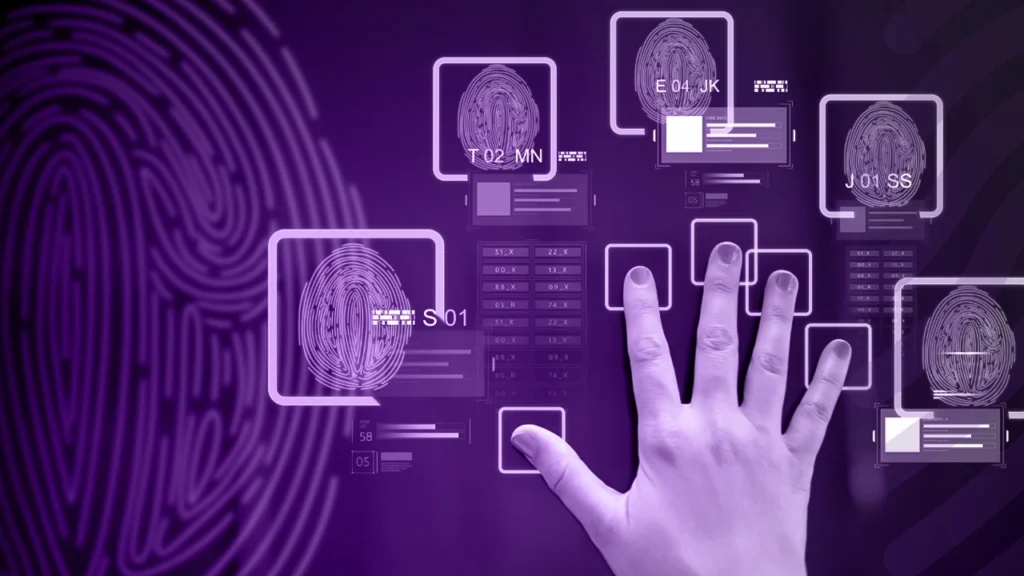Introduction: Blockchain’s Bold Promise
Blockchain has been hailed as a game-changer across industries from finance and supply chain to healthcare and real estate. One area generating increasing interest is digital identity verification. Proponents argue that blockchain could revolutionize the way individuals prove who they are online, reducing fraud and empowering users with greater control over their data.
But is this reality, or just another buzzword? While the hype is strong, the real applications of blockchain in digital identity are now starting to take shape, especially in regulated industries like finance and compliance.
The Problem with Current Digital Identity Systems
Before exploring blockchain, it’s important to understand why identity needs fixing in the first place. Today’s systems face challenges such as:
- Fragmentation – Individuals juggle multiple logins, passwords, and verification processes.
- Fraud Risks – Identity theft and synthetic fraud continue to rise globally.
- Lack of Ownership – Users rarely control their personal data; it sits in centralized databases vulnerable to breaches.
- Compliance Burdens – Businesses spend billions annually on KYC, KYB, and AML compliance.
Blockchain promises to address these weaknesses by offering decentralization, transparency, and immutability.
Blockchain for Digital Identity: What’s Hype?
Let’s start with the exaggerations often associated with blockchain identity solutions:
“Blockchain will completely replace traditional KYC.”
Reality: Regulators still require businesses to perform standardized KYC checks. Blockchain can complement, not replace, compliance frameworks.
“Blockchain identities are 100% secure.”
Reality: While blockchain itself is tamper-resistant, vulnerabilities exist in endpoints (apps, wallets, devices). User negligence or hacking can still compromise identities.
“Everyone will use blockchain IDs by 2025.”
Reality: Adoption depends heavily on regulations, infrastructure, and interoperability between different blockchain systems a long road ahead.
The hype is built on blockchain’s potential, but the path to universal adoption is more complex.
Real Applications Emerging Today
Despite the overstatements, blockchain is already proving valuable in several practical identity use cases:
1. Self-Sovereign Identity (SSI)
Blockchain enables individuals to store verified identity attributes (like passports, licenses, or bank credentials) in a secure digital wallet. Users can then share only the necessary data for each transaction enhancing privacy.
2. Streamlined KYC & AML Compliance
Financial institutions can use blockchain to share verified customer data securely, reducing duplication in compliance checks. This lowers onboarding costs while keeping regulators satisfied.
3. Cross-Border Verification
In regions like MENA, where workers and businesses often operate internationally, blockchain-based identity systems help establish trust across borders without repetitive manual checks.
4. Fraud Prevention
Immutable blockchain records make it significantly harder for fraudsters to manipulate or forge identities, especially in high-risk industries like banking, insurance, and real estate.
5. Corporate KYB Checks
Blockchain can verify business ownership structures and Ultimate Beneficial Owners (UBOs) more efficiently, supporting Know Your Business (KYB) compliance.
Challenges Still Holding Blockchain Identity Back
While promising, blockchain identity solutions must overcome:
- Regulatory acceptance – Governments must recognize blockchain IDs as legally valid.
- Standardization – Multiple platforms exist, but lack of interoperability slows adoption.
- User adoption – Everyday users may resist managing their own keys and wallets.
- Integration with legacy systems – Most businesses still rely on traditional databases and must bridge the gap.
These challenges mean blockchain identity will grow gradually, in hybrid systems that combine blockchain with existing compliance tools.
Blockchain + Compliance: A Practical Future
The most realistic near-term application of blockchain isn’t replacing compliance but enhancing it. By integrating blockchain into existing KYC/AML workflows, businesses can:
- Reduce duplication of verification efforts.
- Improve transparency between regulators and institutions.
- Protect customer privacy by limiting unnecessary data sharing.
- Build trust across global B2B and B2C transactions.
This aligns perfectly with industries in finance, fintech, and real estate, where compliance is both mandatory and costly.
Conclusion: Separating Hype from Reality
Blockchain’s potential in digital identity is undeniable, but it’s not a silver bullet. The hype of instant, universal adoption is far from realistic. However, its real applications in self-sovereign identity, fraud prevention, and compliance optimization are already making an impact.
As the technology matures, businesses that adopt blockchain-supported identity solutions early will gain an edge in efficiency, compliance, and customer trust.
To explore how digital identity innovations are transforming compliance and fraud prevention in the MENA region, you can visit website to learn more.








